'Multilayered, multichannel and intensive' activities held to release information
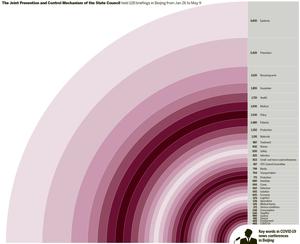 (MUKESH MOHANAN / CHINA DAILY)
(MUKESH MOHANAN / CHINA DAILY)
Clear and real-time information has been consistently delivered by the Chinese government during the fight against the novel coronavirus outbreak, research has found.
A total of 128 briefings were held in Beijing from Jan 26 to May 9 by the State Council's Joint Prevention and Control Mechanism, China Daily research has shown.
The news conferences not only provided briefings on the evolving pandemic, but also focused on other crucial issues, such as ensuring grain production, assisting vulnerable populations and the resumption of work.
Guo Weimin, vice-minister of the State Council Information Office, said China has organized "multilayered, multichannel and intensive" activities to release information about the contagion.
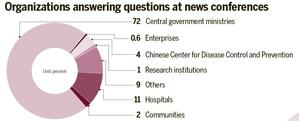
"The number, scale and form of relevant news briefings are all unprecedented," he said at a news conference on May 20.
"From the State Council and the Hubei government, to ministry-level departments and local authorities, the tight pace of information release has provided strong support to win the battle against the disease. It has also obtained recognition from both the domestic and international community."
Meanwhile, in Wuhan, capital of Hubei province, which was hit the hardest by the outbreak in China, daily news conferences have been organized by the provincial epidemic control command center. On May 22, the number of conferences held topped 100, and at one time, two news briefings were organized every day in the city.
Shi Anbin, deputy dean of Tsinghua University's School of Journalism and Communication, said, "Arranging two major briefings a day was a bold attempt and a pioneering undertaking (to deliver) the latest information from Wuhan."
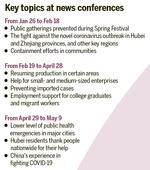
At the height of the outbreak, nearly all provincial-level governments in the country held regular news briefings, including Beijing, Shanghai and Guangdong province.
When the nationwide spread of the contagion eased and small clusters of infections emerged in some areas, such as Heilongjiang and Jilin provinces, local authorities swiftly held briefings to release information to the public.
Shi said: "Compared with the information release mechanism during the severe acute respiratory syndrome (SARS) outbreak in 2003, China has seen marked improvements in key performance indicators of information release-frequency, quality and timeliness. Worldwide, China also ranks among the top (countries) in this respect."
Wu Zunyou, a chief epidemiologist from the Chinese Center for Disease Control and Prevention, said one key lesson the country learned from the SARS outbreak was to release and share information as quickly as possible and in the most transparent manner.
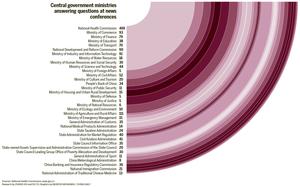
The China Daily research found that since late February, daily briefings in Beijing have focused more on curtailing imported infections. This change was made after the spread of COVID-19 accelerated globally and China began to work more closely with other countries to share experiences and coordinate cross-border disease control work.
Shi, from Tsinghua University, said he was impressed by the two news conferences held in English by the State Council Information Office in Wuhan, where frontline medical workers were invited to share their experience in treating patients and address key issues such as mutations of the virus.
"This shows that Chinese experts are now able to respond directly in English to international concerns raised by foreign reporters, which is another big stride forward," he said.
A number of agencies have been called on to provide information about the outbreak in China.
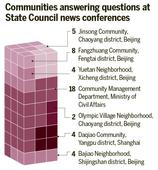
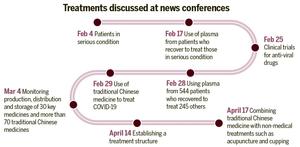
The China Daily research shows that of the 2,276 major answers given during daily briefings in Beijing, the National Health Commission provided 469, followed by the Ministry of Agriculture, the Ministry of Commerce and the Ministry of Industry and Information Technology.
Chang Jian, a professor of administrative management at Nankai University's Zhou Enlai School of Government in Tianjin, said, "We have also listened to frontline medical workers, researchers, grassroots officials and food delivery workers. Their information is more straightforward, emotional, and thus is easily understood and accepted by the public."
Cao Peixin, deputy dean of Communication University of China's School of Journalism in Beijing, said, "The content of briefings could be more extensive and tailored to changing public demands.
"Many people are at a loss as they seek advice on career strategies, their investment plans and consumption choices. More information is needed to help ease their anxiety."



